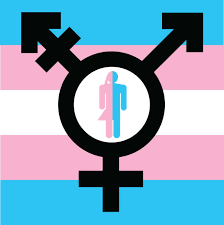When it comes to gender-affirming surgeries, MTF orchiectomy stands out as an essential step for many individuals on their transition journey. This procedure involves the surgical removal of the testicles and is often sought by those who wish to reduce testosterone levels and achieve a more feminine appearance. Understanding the effects of this surgery—ranging from physical and emotional impacts to recovery experiences—can help potential patients make informed decisions. In this article, we’ll dive deep into the various aspects of MTF orchiectomy, providing insights and real-life stories to illuminate the experience.
Understanding MTF Orchiectomy: A Quick Overview
MTF orchiectomy is a surgical procedure that involves the removal of the testicles, providing a pathway for male-to-female individuals to align their physical bodies with their gender identity. For many, this procedure is not only a personal choice but a medically necessary step towards reducing testosterone production, which plays a crucial role in the male puberty changes that trans women often seek to reverse. The surgery is typically considered as part of a broader gender-affirming treatment plan, which may also include hormone therapy and, at times, additional surgeries.Gender Reassignment Male To Female Before And AfterSissy Sex Shop
While orchiectomy can seem daunting, it’s important to recognize that it can lead to significant improvements in quality of life. Many individuals report feeling more at peace with their bodies and experience a reduction in gender dysphoria. It’s often one of the first steps towards achieving the desired physical characteristics associated with femininity, making it a vital aspect of the transition process for many people.
The Procedure: What Happens During Orchiectomy?
Orchiectomy is performed under general or regional anesthesia, meaning you won’t feel any pain during the operation. The surgeon makes a small incision in the scrotum or lower abdomen, depending on the surgical technique used. Through this incision, the testicles are carefully removed. The procedure usually lasts about an hour and is often done on an outpatient basis, allowing patients to return home the same day, although some may opt for an overnight stay for peace of mind.
Post-surgery, patients are monitored for a short period as the anesthesia wears off. Surgeons will provide instructions on how to care for the incision site, manage pain, and recognize any potential complications. It’s normal to experience some swelling and discomfort, but these symptoms typically subside with proper care. Understanding what to expect during the procedure can help reduce anxiety and ensure a smoother experience.
Physical Effects: Changes in Your Body Post-Op
After undergoing orchiectomy, the most immediate physical change is the significant drop in testosterone levels. This decrease can lead to various physical effects, such as reduced body hair growth, softer skin, and changes in fat distribution that may contribute to a more feminine shape. Many who undergo this procedure find that their overall physical appearance aligns more closely with their gender identity, leading to heightened self-confidence and comfort in their own skin.
In the months following the surgery, some individuals may also notice changes in libido and sexual function. While some may experience a decrease in sexual desire, others report that their sexual experiences become more positive as they learn to embrace their new bodies. These changes can be both exciting and challenging, and it’s essential to approach them with a mindset of self-compassion and exploration.
Emotional Impact: Mental Health After Orchiectomy
Transitioning is a deeply personal journey, and the emotional impact of orchiectomy can vary significantly from person to person. For many, the surgery can provide a sense of relief and validation as they take a concrete step towards aligning their physical body with their gender identity. This newfound alignment can lead to improved mental health outcomes, including reduced anxiety and depression related to gender dysphoria.
However, it’s essential to acknowledge that the emotional journey doesn’t end with surgery. Some individuals may experience a range of feelings, from joy and relief to uncertainty and sadness. It’s crucial to have a support network in place, whether through friends, family, or mental health professionals, to help navigate these complex emotions. Therapy and support groups can also be beneficial in providing a safe space to discuss feelings and experiences.
Hormonal Shifts: How Orchiectomy Affects Estrogen Levels
One of the most significant changes following orchiectomy is the alteration in hormone levels. With the removal of the testicles, testosterone production decreases, which can lead to an increased reliance on estrogen if hormone replacement therapy (HRT) is being pursued. Many individuals on HRT may find that their bodies respond more favorably to estrogen after surgery, leading to enhanced breast development and other secondary sexual characteristics.
However, it’s important to monitor hormone levels closely after orchiectomy, as the body adjusts to the new hormonal landscape. Regular check-ups with a healthcare provider can ensure that hormone levels remain balanced and that any necessary adjustments to HRT can be made. Understanding the hormonal changes can help individuals manage their transition more effectively and achieve their desired physical outcomes.
Voice Changes: What to Expect After the Surgery
One common concern for many transgender women is the impact of orchiectomy on voice. Unlike some other physical changes, orchiectomy does not directly affect the vocal cords, meaning voice training and practice are still necessary for those seeking a more traditionally feminine voice. Many individuals choose to engage in speech therapy or voice coaching post-surgery to enhance their vocal feminization.
While the surgery can lead to a decrease in testosterone, which may result in a slightly softer voice over time, significant changes typically require active vocal training. For those committed to this aspect of their transition, combining voice practice with hormone therapy can yield positive results, allowing for the development of a voice that aligns more closely with their gender identity.
Recovery Timeline: Healing and What to Watch For
Recovery from orchiectomy is generally straightforward, but it’s essential to be mindful of the healing process. In the first few days post-op, patients should expect some swelling, bruising, and discomfort around the incision site. Most individuals can return to light activities within a week, but it’s best to avoid strenuous exercise or heavy lifting for several weeks to ensure proper healing.
During the recovery period, it’s crucial to watch for any signs of complications, such as excessive bleeding, severe pain, or signs of infection. Following all post-operative care instructions and attending follow-up appointments can help ensure a smooth recovery. While every recovery journey is unique, most people find that they begin to feel more like themselves within a few weeks, heralding the exciting new chapter of their lives.
Real Experiences: Stories from Those Who’ve Had It
Hearing personal stories can provide invaluable insight into the experience of MTF orchiectomy. Many individuals report that the surgery was a major turning point in their transition, dramatically improving their quality of life and reducing feelings of dysphoria. One individual shared, “After my orchiectomy, I felt a weight lift off my shoulders. I finally felt like my body matched who I am inside.” Such testimonials highlight the profound impact this procedure can have on personal identity and mental well-being.
Conversely, some individuals have found the recovery period challenging, citing emotional ups and downs as they adjust to their new bodies. Another person remarked, “It was a mix of emotions—relief, joy, and even some sadness. I had to take time to process everything.” These varying experiences emphasize the importance of support and understanding during the transition journey, reminding us that each individual’s path is unique.
MTF orchiectomy can be a transformative step for many individuals on their gender transition journey. By understanding the procedure, physical and emotional effects, and real experiences from those who have gone through it, potential patients can better navigate their own paths. Whether you’re considering the surgery or simply seeking more information, remember that support and self-compassion are key components of this deeply personal experience. Embracing your journey, whatever it may entail, can lead to profound growth and fulfillment.


